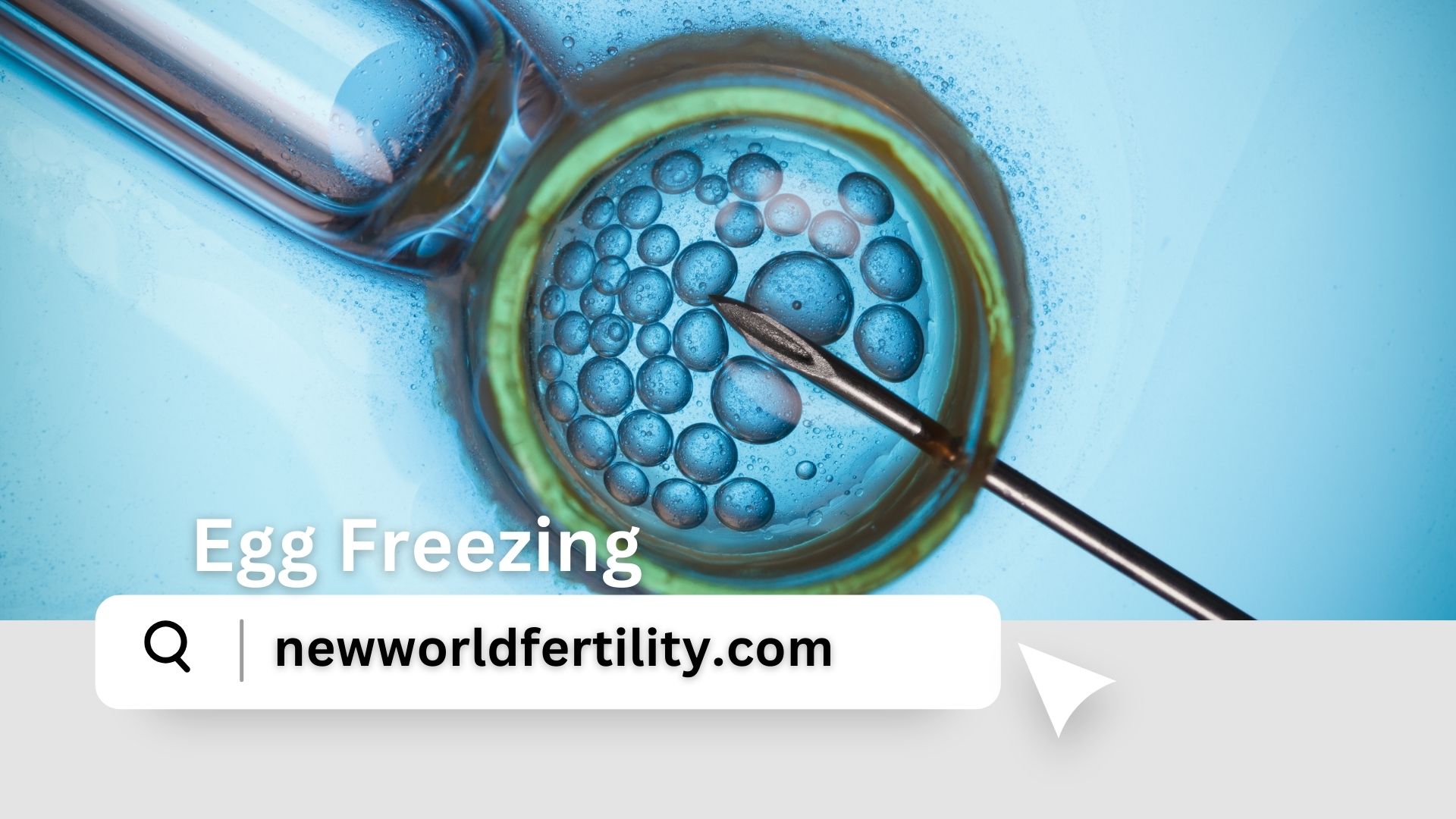Introduction
Egg freezing, also known as oocyte cryopreservation, is an advanced reproductive technology that allows women to preserve their fertility for the future. Whether due to career planning, medical treatments, or personal choices, egg freezing offers hope for those wanting to conceive later in life. However, before making this significant decision, crucial factors must be considered to ensure the best possible outcome.
If you're considering egg freezing, choosing the Best IVF Center in Delhi, such as New World Fertility, can significantly improve your chances of success. This guide will walk you through the top 10 essential things to consider before freezing your eggs.
1. When Is the Right Time to Freeze Your Eggs?
Age plays a crucial role in the success of egg freezing. The best time to freeze your eggs is before 35 years old, as younger eggs have higher quality and better survival rates after thawing. However, egg freezing is still an option for women in their late 30s or early 40s, although success rates decline with age.
To assess your ovarian reserve, doctors recommend undergoing Anti-Müllerian Hormone (AMH) and Antral Follicle Count (AFC) tests. These tests help determine the quantity and quality of your eggs, guiding the best time to proceed with freezing.
2. Understanding the Egg Freezing Process
Egg freezing involves multiple steps, including:
Ovarian stimulation: Hormonal injections stimulate the ovaries to produce multiple eggs.
Egg retrieval: A minimally invasive procedure under sedation to collect mature eggs.
Vitrification: A rapid freezing technique that prevents ice crystal formation, improving egg survival rates.
New World Fertility follows advanced freezing techniques, ensuring high egg survival and fertilization success rates when you're ready to use them.
3. Success Rates of Egg Freezing
Egg freezing success depends on factors like age, egg quality, and lab expertise. Studies show:
Women under 35 have a 70-90% egg survival rate post-thawing.
Live birth rates per frozen egg range from 4% to 12%, meaning more eggs increase the chance of pregnancy.
The success of fertilization depends on IVF techniques and the quality of sperm used.
Choosing the Best IVF Center in Delhi, such as New World Fertility, ensures that your frozen eggs are handled with cutting-edge reproductive technologies for optimal outcomes.
4. How Many Eggs Should You Freeze?
Experts recommend freezing 15-20 mature eggs for a higher probability of a future successful pregnancy. The exact number depends on age and ovarian reserve. Younger women may need fewer eggs, while older women may require more to increase their chances.
5. Cost & Financial Considerations
Egg freezing involves several costs, including:
Ovarian stimulation medications
Egg retrieval procedure
Freezing and storage fees (typically annual)
Future thawing and IVF treatment costs
Costs vary by clinic, but at New World Fertility, we offer affordable packages and financing options to help make fertility preservation accessible.
6. Risks & Side Effects
While generally safe, egg freezing carries some risks, including:
Ovarian Hyperstimulation Syndrome (OHSS): An overreaction to fertility drugs causing bloating and discomfort.
Surgical risks: Minimal risks associated with egg retrieval.
Egg survival uncertainty: Not all frozen eggs will survive the thawing and fertilization process.
Our specialists at New World Fertility ensure personalized fertility treatment plans to minimize risks and maximize success rates.
7. Emotional & Psychological Considerations
Egg freezing can be an emotionally charged decision. Some women feel reassured by preserving their fertility, while others experience anxiety about future outcomes. It's essential to have emotional support, whether from family, friends, or fertility counselors.
8. Choosing the Right Fertility Clinic
Selecting the Best IVF Center in India is crucial for egg freezing success. Look for a clinic with:
High egg survival and pregnancy success rates
Experienced reproductive specialists
State-of-the-art laboratory technology
Transparent pricing and patient support
New World Fertility meets all these criteria, providing expert guidance and world-class facilities for a smooth and successful egg-freezing journey.
9. Alternative Fertility Preservation Options
Egg freezing isn’t the only fertility preservation method. Alternatives include:
Embryo freezing (if you have a partner or wish to fertilize eggs beforehand)
Ovarian tissue freezing (for younger cancer patients)
Hormonal treatments to delay menopause
Consulting with specialists at New World Fertility can help determine the best option based on your reproductive goals.
10. Using Frozen Eggs for Pregnancy
When you're ready to conceive, the frozen eggs are thawed, fertilized with sperm, and transferred into the uterus via IVF. The success depends on factors like:
Egg quality and survival rate
Embryo implantation success
Overall uterine health
At New World Fertility, our experts use advanced fertility techniques to maximize pregnancy success rates using frozen eggs.
Conclusion
Egg freezing is an empowering option for women who wish to delay pregnancy while preserving their fertility. However, understanding the process, success rates, costs, and choosing the right fertility clinic is essential for a successful outcome.
For expert fertility preservation services, New World Fertility, recognized as the Best IVF Center in Delhi, offers cutting-edge egg freezing solutions, personalized care, and high success rates. Schedule a consultation today to take the first step toward securing your reproductive future.
FAQs About Egg Freezing
Q1: Is egg freezing 100% successful?
Egg freezing increases the chance of pregnancy, but not all frozen eggs result in live births. Success rates depend on egg quality and the IVF process.
Q2: How long can eggs be frozen?
Eggs can be stored for 10-15 years or longer with no deterioration in quality.
Q3: Does egg freezing affect natural fertility?
No, egg freezing does not impact your natural ability to conceive in the future.
Q4: Can I freeze eggs after 40?
Yes, but success rates decline with age. Women over 40 should discuss their options with fertility experts.
For more guidance, visit New World Fertility and explore our advanced fertility preservation services today!

 Aug-27-2025
Aug-27-2025